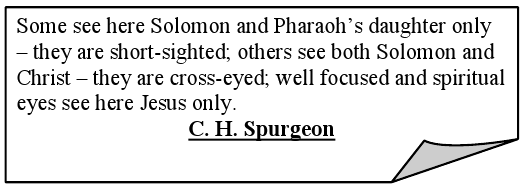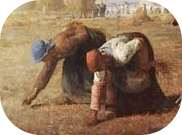


Verse 1. “My heart is inditing a good matter: I speak of the things which I have made touching the king…” This song has “the King” for its only subject, and for the King's honour alone was it composed; well might its writer call it a good matter.
C. H. Spurgeon
Verse 1. “… my tongue is the pen of a ready writer.” We call the prophets and psalmists the penmen of Scripture, whereas they were but the pen.
Matthew Henry
Verse 3. “Gird thy sword upon thy thigh …” The Word of God is compared to such a weapon as a sword. It must be observed, however, that this description of the Word of God is applicable to it only when Crest girds it on, and employs it as His sword. While it lies in its scabbard, or is wielded only by the infantile hand of Christ's ministers, it is a powerless and useless weapon; a weapon at which the weakest sinner can laugh, and against which he can defend himself with the utmost ease. But not so when He who is the most mighty girds it on. Then it becomes a weapon of tremendous power; a weapon resistless as the bolt of heaven. “Is not my word like a fire, and a hammer, saith the Lord, which breaketh the rock in pieces?” It is indeed, for what can be more efficacious and irresistible than a weapon sharper than a two-edged sword, wielded by the arm of omnipotence?
Edward Payson
Verse 4. “And in thy majesty ride prosperously because of truth …” The wheels of Christ's chariot, whereupon He rideth when He goes to conquer and subdue new converts to His kingdom, are majesty, truth, meekness, righteousness, manifested in the preaching of His gospel. Majesty, when the stately magnificence of His person and office is declared: Truth, when the certainty of all that He teaches in Scripture is known; Meekness, when His grace and mercy is offered to rebels; and Righteousness, when justification by faith in His name is clearly set forth. Christ goeth no voyage in vain; He cometh not short of His intention and purpose, but does the work for which He comes, preaching the gospel. Therefore, in His majesty, truth, meekness and righteousness He “rideth prosperously.”
David Dickson
Verse 7. “Thou lovest righteousness, and hatest wickedness: therefore God, thy God, hath anointed thee with the oil gladness above thy fellows.” Observe how usual it is to impute Christ's exaltation to His merits. So the apostle Paul: God highly exalted Him and gave Him a name which is above every name, because He had humbled Himself, and become obedient unto death. And here, God anointed Him with the oil of gladness above His fellows, because He loved righteousness and hated iniquity.
George Harpur
Verse 10. “Hearken, O daughter … forget also … thy father's house.” The house of our nativity is the house of sin – we were shapen in iniquity. The carnal mind is enmity against God, therefore we must come forth out of the house of fallen nature, for it is built in the City of Destruction.
Spurgeon
Verses 13 to 15. “The Church – The Bride of Christ.”
Hints to the Village Preacher, Duncan MacGregor
Verse 15. “With gladness and rejoicing shall they be brought …” Reader! Do not fail to observe the manner of expression; the church is “brought”, she does not come of herself. No, she must be convinced, converted, made willing. No one can come to Christ except the Father, who has sent Christ, draw him.
|
This Page Title – Gleanings in the Psalms — Psalm 45 The Wicket Gate Magazine "A Continuing Witness". Internet Edition number 86 – placed on line September 2010 Magazine web address – www.wicketgate.co.uk |